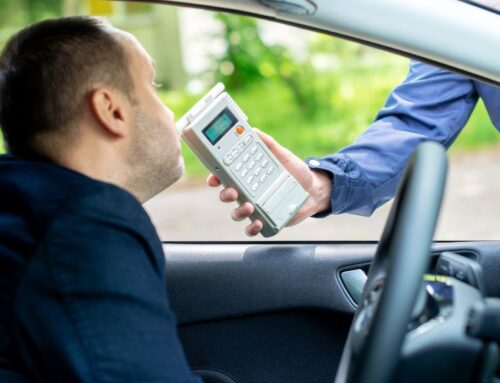What is Criminal Conversion in Indiana?
Think “Borrowing” is Harmless? Indiana’s Criminal Conversion Laws Might Surprise You.
Have you ever taken something without asking? In Indiana, doing that could get you into trouble with the law, even if you were planning to return it.
Criminal conversion is when you use someone’s belongings without their permission. It’s not the same as stealing. Wondering what exactly counts as criminal conversion in Indiana and how it’s different from theft? Let’s take a closer look.
Quick Summary:
- Criminal conversion means using, changing, or controlling someone else’s property without asking first.
- Unlike theft, where the intention is to keep the property forever, criminal conversion might involve borrowing it for a while.
- Indiana Code Section 35-43-4-3 sets the rules for criminal conversion, focusing on intent, unauthorized control, and the impact on the property’s use or value.
- Borrowing without permission, using things without asking, selling items that aren’t yours, changing someone else’s property, and not giving back borrowed items are common examples.
- Punishments for criminal conversion vary depending on factors like the seriousness of the offense and the person’s criminal history, ranging from fines to jail time.
- A conviction for criminal conversion can have lasting effects on employment, housing, education, and even rights like voting and gun ownership.
- Defenses against criminal conversion charges include saying you didn’t mean to do it or thought it was okay with the owner.
If you think that borrowing your friend’s belongings without asking is not a big deal, think again. It could get you into legal trouble. Let’s look at criminal conversion and why it differs from just stealing something.
What is Criminal Conversion?
Using, controlling, or changing someone else’s property without consent is criminal conversion. It’s illegal even if you’ll return it. Theft means you want to keep the property permanently, whereas criminal conversion may merely mean you want to utilize it.
Indiana Code Section 35-43-4-3 governs criminal conversion. According to these rules, criminal conversion involves knowingly or purposefully controlling someone’s property without permission to take away their usage. This includes taking something without asking and not returning it.
The important parts of criminal conversion in Indiana are:
- Knowledge or intent: This means the person purposely controls someone else’s property. They know they don’t have permission to use it or use it without asking.
- Unauthorized control: They control the property without the owner saying it’s okay. This could mean taking, using, or changing it in a way the owner didn’t agree to.
- Deprivation of use or value: Their actions must mean the owner can’t use the thing or it’s not worth as much anymore. Even if they plan to return it later, stopping the owner from using it or making it worth less is still a criminal conversion.
Indiana criminal conversion resembles theft, but there’s a distinction. Robbers intend to preserve their loot permanently. Criminal converts may not want to keep it long; they steal it without permission. Ask permission before borrowing or using someone else’s property. You can avoid legal issues this way.
What are Examples of Criminal Conversion?
Ever accidentally grabbed your neighbor’s newspaper? Or found a lost wallet and weren’t sure if it was yours? Knowing about criminal conversion can help you avoid getting into trouble with the law. Here are everyday situations where you might not realize you’re doing something wrong, giving you clear explanations and advice.
- Borrowing Without Permission: Taking someone’s belongings without asking and using them without their consent, with no intention of returning them.
- Using Property Without Authorization: Using someone else’s property, such as a vehicle, without their permission and against their wishes.
- Selling Stolen Goods: Selling items you took without permission, knowing it’s not yours to sell.
- Altering Property: Changing or modifying someone else’s property without their permission, thereby depriving them of its original value or intended use.
- Refusing to Return Borrowed Items: Borrowing something with the promise to return it but then intentionally keeping it for yourself without the owner’s consent.
- Unauthorized Use of Funds: Taking money or things meant for one thing and using it for yourself without permission.
- Misappropriating Company Property: Taking things from your job, like office supplies, for your use without asking.
- Forging Signatures: Signing papers for someone else without them knowing, which isn’t okay, and can move things around without their say.
These examples show how someone might unlawfully use or take someone else’s property, which is considered criminal conversion.
If I Committed Criminal Conversion, Will I Be Penalised?
If you’ve done criminal conversion, you might get in trouble with the law. The punishment and what happens later because of criminal conversion can change based on different things, like:
- Value of the property: Higher value typically leads to harsher penalties.
- Intent: Was it accidental or intentional misuse?
- Prior criminal record: Having a record can increase the severity of the punishment.
What are the Potential Consequences?
The consequences for criminal conversion vary based on the specific circumstances. Sometimes, it’s seen as a smaller crime called a misdemeanor, while other times, it’s a more serious offense known as a felony.
If you’re found guilty of misdemeanor criminal conversion:
- Fines: You might have to pay fines decided by the court. The amount depends on how serious the crime was, but usually, it’s between a few hundred to a few thousand dollars.
- Jail: You could also get a short jail sentence, usually up to a year.
For felony convictions:
- Higher Fines: Fines can be much higher than misdemeanors, ranging from several thousand to tens of thousands of dollars.
- Longer Prison Sentences: You might face longer prison time, which could be more than a year, depending on how bad the offense was.
In both cases, you might also have to pay back the owner for any damage or loss caused by what you did.
Are There Life-Long Consequences?
The lifelong consequences of criminal conversion in Indiana can be significant and far-reaching. Here are some potential impacts:
- Permanent Record: If you’re convicted, you’ll have a permanent mark on your record, which can make it harder to find jobs, housing, and get into schools.
- Jobs: Many employers check your background, and having a criminal record might make it tough to get hired.
- Housing: Landlords also look at your background, so finding a place to live could be harder.
- School: Some schools might not accept students with a criminal record, and it could affect financial aid options.
- Licenses: Some jobs need special licenses, and having a criminal record might make it hard to get or keep them.
- Social Life: People might look at you differently if they know about your criminal record, which could affect your friendships and how you fit into your community.
- Loss of Rights: Depending on the seriousness of the crime, you might lose certain rights, like voting or owning a gun.
Overall, the effects of criminal conversion can be serious and last a long time, so it’s important to think carefully about your actions and seek help if you need it.
If I am Accused of Criminal Conversion, What Are My Potential Defenses?
Defenses against criminal conversion charges in Indiana can include:
- Lack of Intent: If you didn’t mean to take or use someone’s property wrongly, it might not be a crime. For example, if you thought you had permission to use it.
- Permission: If the owner said it was okay for you to use or take their belongings, then it’s not criminal conversion. Showing proof they said you could use it can help.
- Ownership: If you genuinely believed the item was yours or you had a right to it, you might have a defense. This could be if there was confusion or you honestly thought it was yours.
- Mistake of Fact: If you didn’t know the item wasn’t yours or you had a right to use it, it could be a defense. For example, if you thought something was abandoned and it wasn’t.
- Duress or Necessity: If you had to use or take someone’s belongings because you were threatened or had no other choice, it could be a defense.
- Consent: If the owner didn’t say it was okay, but they implied it or didn’t say no, it might not be criminal conversion.
- Return of Property: If you give back what you took and make up for any damage, it could help your case or make the charges less serious. It’s a good idea to talk to a lawyer to figure out the best way to defend yourself based on what happened.
If you believe that you are falsely accused of criminal conversion, it’s important to talk to a legal professional to figure out the best way to defend yourself, based on what happened in your situation.
Confused About Criminal Conversion in Indiana? Let’s Clear It Up!
It’s important to know that intent is a big deal when it comes to deciding if something is criminal conversion. If you’re not sure if it’s okay to use someone else’s property or belongings, it’s better to be safe and ask for permission. Facing criminal conversion charges can change your life. That’s why it’s so important to have a good lawyer who knows Indiana law well and has helped others in situations like yours before.
Wilson & Kinsman LLC has a deep understanding of criminal conversion and has helped many people in your shoes. We have also assisted clients facing theft, shoplifting, and aggravated assault accusations. Don’t take chances with what could happen to you – talk to us now for a private chat and let us use our experience and resources to help you out.
Share This Story, Choose Your Platform!
Give us a call!
Testimonials
Read what our former clients have to say:







